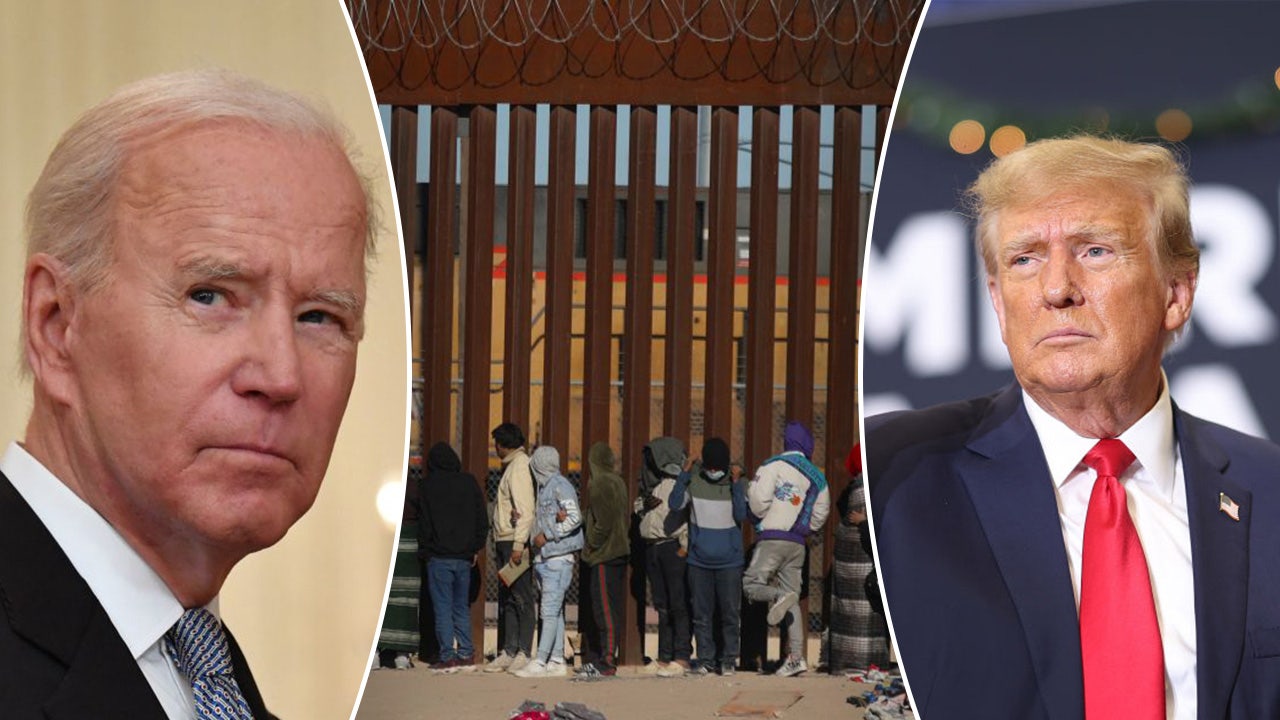A Parent’s Heartbreak: Navigating Fentanyl’s Toll Amidst Border Policy Turmoil
In the quiet moments of reflection, a parent’s heart can wrestle with an insurmountable wave of grief. The loss of a child is a devastation that no parent should endure, yet for many families across the nation, this tragedy has become an all-too-common reality. The opioid crisis, particularly the surge of fentanyl, has claimed countless young lives, turning vibrant futures into haunting memories. In this article, we delve into one parent’s heart-wrenching journey following the loss of their teenager to fentanyl, exploring the intertwined complexities of border policies and the broader implications of governmental strategies in combating this crisis.
Understanding the Fentanyl Crisis
Fentanyl, a synthetic opioid that is 50 to 100 times more potent than morphine, has emerged as a significant factor in the opioid epidemic. Over the past decade, the United States has witnessed a staggering increase in fentanyl-related overdoses, particularly among young adults and teenagers. According to the Centers for Disease Control and Prevention (CDC), fentanyl was involved in over 70% of all opioid overdose deaths in 2021.
This crisis is exacerbated by the drug’s affordability and accessibility. Fentanyl is often mixed with other drugs, such as heroin and cocaine, without users’ knowledge, leading to fatal consequences. The story of one grieving parent serves as a poignant reminder of this underlying issue. They recount the day they lost their child, a bright teenager who succumbed to fentanyl after unknowingly consuming a counterfeit pill that contained the deadly substance.
A Heartbreaking Personal Account
“I never thought it would happen to us,” the parent shares, their voice trembling with emotion. “We were always so careful, always talking to our kids about drugs and safety. But fentanyl is different. It’s a silent killer.” This parent’s experience underscores the complexity of addressing drug use among teenagers and the devastating impact of fentanyl.
They describe their child’s vibrant personality: a talented musician with dreams of attending college. The bright future they envisioned turned into a nightmare as they navigated the harrowing aftermath of their child’s death. This loss is not just personal; it reflects a systemic issue that affects thousands of families across the United States.
Border Policy Turmoil: A Contributing Factor
In the context of this personal tragedy, the parent highlights a critical aspect of the fentanyl crisis: border policies. The current administration’s approach to immigration and border control has been a topic of heated debate, with some arguing that lax policies contribute to the drug trade. The parent believes that the influx of fentanyl across the southern border exacerbates the crisis, making it easier for traffickers to distribute this lethal substance.
“When policies change, it impacts everything,” they explain. “We need stricter measures to prevent these drugs from entering our communities. It’s heartbreaking to think that our government isn’t doing enough to protect our children.” This sentiment resonates with many who have experienced loss due to the opioid crisis, as they advocate for more robust measures to combat drug trafficking.
Contrasting Views on Past Administrations’ Efforts
The parent’s perspective reflects a broader debate about the effectiveness of past administrations in tackling the opioid epidemic. Some argue that previous efforts to combat drug abuse were insufficient, citing the need for comprehensive strategies that address both prevention and treatment. Others maintain that recent administrations have made strides in altering policy to better address the crisis, framing the issue as a multifaceted challenge requiring collaboration across various sectors.
Critics of previous policies point to the lack of adequate funding for addiction treatment programs and prevention initiatives. They argue that combating the fentanyl crisis requires a holistic approach, addressing the root causes of addiction, increasing access to mental health resources, and ensuring that law enforcement is equipped to tackle the trafficking of these dangerous drugs.
Finding Hope Amidst the Heartbreak
While the pain of losing a child to fentanyl may seem insurmountable, the parent emphasizes the importance of community support and raising awareness. “We need to talk about this. We need parents to understand the risks and for kids to know that it’s okay to ask for help,” they assert. This call to action reflects a growing movement among bereaved families who aim to turn their pain into purpose.
Through advocacy and education, they hope to prevent other families from experiencing the same heartbreak. Community organizations, non-profits, and support groups are emerging to spread awareness about the dangers of fentanyl and the importance of proactive measures in schools and communities.
The Role of Education and Awareness
Education plays a crucial role in combatting the fentanyl epidemic. Schools and community programs are beginning to implement curricula focused on drug awareness and prevention. Parents are encouraged to engage in open conversations with their children about the dangers of drug use, emphasizing the importance of making informed choices.
- Open Communication: Create a safe space for children to discuss their feelings and concerns about drugs without fear of judgment.
- Educational Programs: Support initiatives that educate teenagers about the risks associated with fentanyl and other drugs.
- Community Involvement: Participate in local forums and discussions centered on substance abuse and prevention strategies.
Conclusion: A Call to Action
The story of this grieving parent serves as a stark reminder of the human cost of the fentanyl crisis. Their experience underscores the urgent need for comprehensive border policies that address drug trafficking while also advocating for education, prevention, and treatment. As communities grapple with the toll of this epidemic, it is imperative that we come together to support one another, raise awareness, and push for policies that prioritize the safety and well-being of our children.
Through collective action, we can honor the memories of those lost and work towards a future where no parent has to endure the heartbreak of losing a child to fentanyl. It’s time for all of us to stand up, speak out, and demand change.
See more WebMD Network



